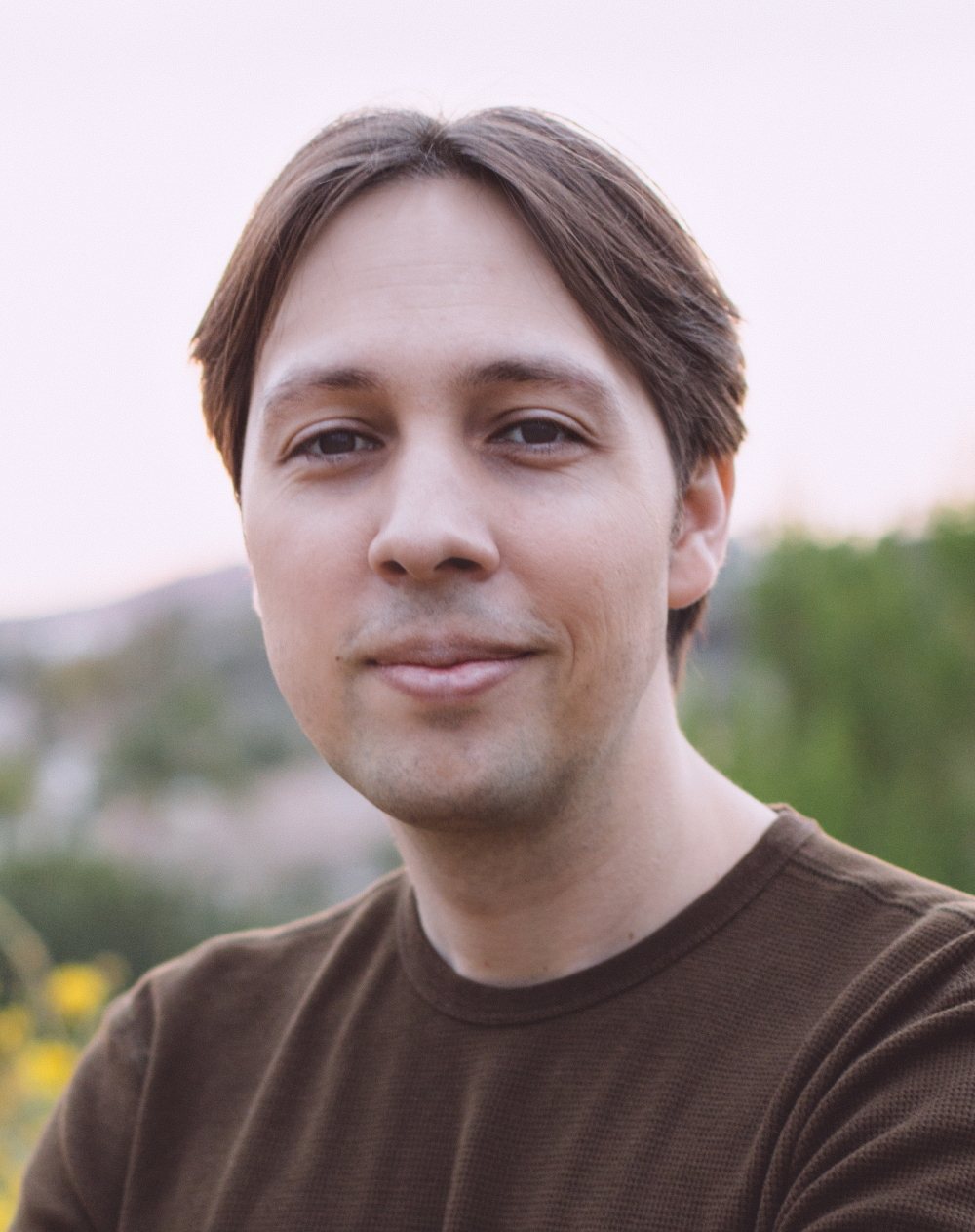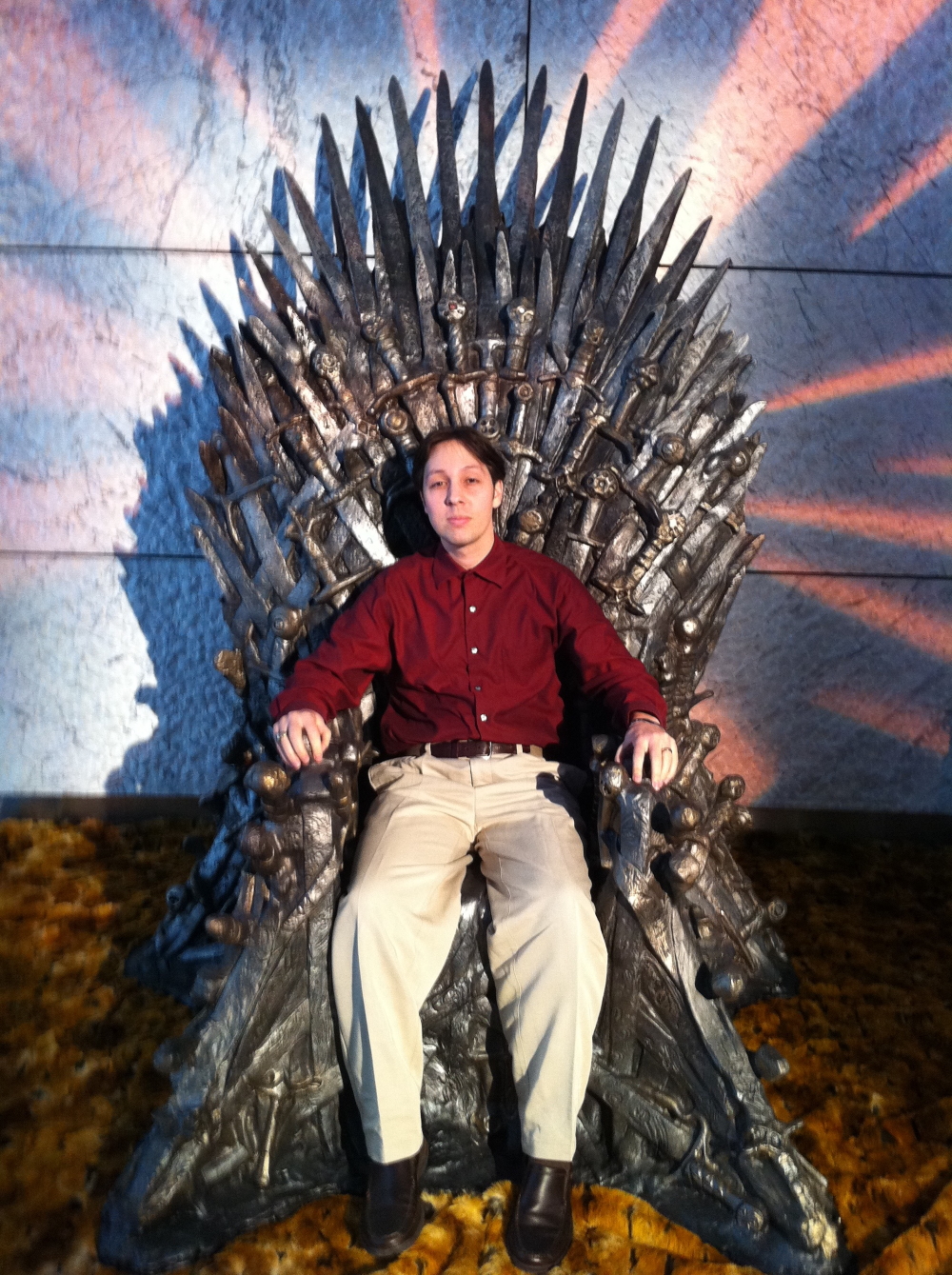David J. Peterson
language creator ("Game of Thrones")
US
In the critically acclaimed and popular fantasy television series 'Game of Thrones', the horsemen Dothraki communicate in the (fictional) language of the same name. It was invented and coherently constructed by David J. Peterson. The language creator was inspired on the one hand by the book by George R. R. Martin, and on the other hand by Turkish, Russian, Estonian, Kiswahili and Inuktitut, the language of the Inuit/Eskimos.
David J. Peterson
language creator ("Game of Thrones")
US

David Joshua Peterson was born on 20 January 1981 in Long Beach/California. From 1999 to 2003, the son of a primary school headmistress studied at the University of California (UC), graduating with a Bachelor's degree in English and Linguistics. While at Berkeley, his interest in language development was sparked by attending an Esperanto course. In 2006, at the end of his UC time in San Diego, he earned a Master's degree in linguistics. Two years later, he founded the Language Creation Society with nine of his colleagues.
When in 2009 the US cable TV channel HBO announced a competition for fictional vocabulary in the context of the "Games of Thrones" production, Peterson was able to prevail against more than 30 competitors, some of them highly renowned. Since then he has created languages for Syfy’s 'Defiance', Netflix’s 'Bright' as well as 'The Witcher', the CW’s 'The 100', Showtime’s 'Penny Dreadful', Marvel’s 'Thor: The Dark World' and others.
With his work, the Californian continues the tradition of a particularly imaginative activity for which J. R. R. Tolkien is also famous. The British writer and philologist, for example, also developed his own languages - Quenya and Sindarin - for the elves of his classic 'The Lord of the Rings'.
The enthusiastic music and sports fan (especially basketball, also active), who learned English as well as Spanish as his mother tongues, can communicate in French and the sign language ASL (American Sign Language), but has also taken lessons in Arabic, Russian, German, Esperanto, Egyptian-Coptic. He has published the following books: 'Living Language Dothraki', 'The Zaanics Deceit' and 'The Art of Language Invention'.
David J. Peterson lives with his wife Erin and daughter Meridian in Garden Grove/California (US).
Interview June 2016
Infant art form: creating coherently constructed fictional vocabulary
ABOUT INSPIRATION & INTUITION
Which place/what environment is best for your creation/work process?
I work best late at night with music on. So long as there's nothing else to distract me, I'm good. I get a lot of ideas in the shower because of the isolation. Generally, though, if I can listen to music, that's all I need.
What, if there is a deadline, but no intuition?
With language creation, the result is a word that may not have a unique etymology, or whose construction may be uninspired. That's always a bummer. I prefer to have time to do it so I can get it right.
Before intuition is inspiration the primary catalyst? If so, what inspires you?
I'm not completely sure. I study languages constantly, so I'm always seeing things here and there I find neat and maybe want to try out, or put my own spin on. Also, though, languages are systems, so I sometimes gain inspiration from other systems: video games, user interfaces, doorknob assemblies, etc.
How do you separate the good from the bad, how do you know which ideas to explore further, which ones are maybe even ahead of their time, visionary ideas and which are not?
This is nearly impossible. Language creation is almost 1,000 years old, but as an art form, it's in its infancy. The community itself can't even decide what precisely language creation is. I know what others have done, though, and I know what I have done. I try to do what others haven't done, or do what I've done previously, but better. Then, where possible, I try to do something I've never seen done in a language—to see if it works, can feel natural. It's a challenge, but it's fun.
What key criteria does the idea need to be viable?
It needs to make sense within the context of the project.
Do you write down an idea right away (and archive it), because you might forget?
If I can. If I can't, I often do forget it. Having a smartphone helps, since you can write things down wherever and it's stored in the cloud. Very handy.
Do you feel if an idea has the potential to be something big?
Sure, but that's a relative thing when it comes to language creation. Nothing we do is what most would consider big. Big in context, though.
How long do you ponder an idea before creatively working on it?
Quite a while, actually. I'll sometimes sit with an idea for several years before doing anything with it. Sometimes it takes that long to come out just right.
ABOUT CREATIVITY
What is the process like from theory/idea to a practical creation?
I start with a notebook and sketch things down, playing around with phonologies and grammatical systems until I feel like I've got something. Then I test it out with some simple translations to see if it has the right sound and feel. If it does, then I start documenting the language and fleshing it out as I go.
Can you force creativity or are „drive“ and efficiency counterproductive?
Sometimes I have to, working for Hollywood. Their deadlines are inviolable. It's not a nightmare all the time. Sometimes what I come up with is pretty good on the fly; other times it's a little dull. It is nice to have a reason to get things finished, though.
Do age and life experience help with creativity or is a younger mind more creative, because it is fresh and untouched by experience? What about social/cultural heritage?
I'm not really in a position to say. At 35, I'm at the younger end of middle-aged. Looking back at myself as a younger language creator, I had a lot of ideas, but most of them were bad. So much knowledge is required to create a language that I'm not sure the early creativity ends up being worth very much. It's a very different type of art form than anything else.
Is it better to be creative on your own, only trust your own instinct, or in a team? However, in a team - how much of your own, personal idea is really left afterwards?
Honestly, I kind of hate working with a team. Especially when it comes to creating a language. I rarely get the opportunity to work with someone who has any understanding of what it is I do. The experience is frustrating.
What is the individual satisfaction based on: a) self-realization and individual fulfilment, b) the (artistic) recognition or c) commercial success?
I don't know. Seeing people get into language is cool. That's a by-product of what I'm doing.
What is your personal motivation for creative activity?
I also don't know. Once I thought up the idea to create my own language, I started immediately, because I couldn't imagine letting that idea lie. I continue to work on my languages, because I love them and I want them to grow. They'll never be finished, so I'll be able to work on them for the rest of my life.
What role does perfection play when it comes to creativity? Is a completely perfect opus soulless?
The fun thing about creating a naturalistic language is: language is an imperfect medium. Language is constantly in flux, constantly evolving. What's correct one day is old fashioned the next and ungrammatical in the distant future. There is no such thing as perfection when it comes to language. That may be one reason I enjoy it so much. I've been a perfectionist my whole life, but with language, it's impossible. It's rather freeing that way.
How is it possible to stay true to yourself artistically, but stay innovative at the same time? Can you keep re-inventing yourself without renouncing/denying your style?
I'm always trying to improve. No reason to do it, if you're not trying to improve.
Is it desirable to be ahead of your time or does it cause to be misunderstood (or not understood at all)?
I think, it can be a bummer sometimes. A lot of times I think something I'm doing now will really be appreciated 50 years after I'm dead. Nothing to do about it, but keep going, though. Life is an endless string of disappointments that looks very impressive in retrospect. Sometimes you just have to keep doing it, even if it feels like no one gets it, just so there's a lot of it to consider later on.
When does the time come to end the creative process, to set the finalized work free - or is there a never-ending possibility of improvement?
The only complete language is a dead language. It just keeps going. Always something more to be done.
ABOUT SUCCESS
Is there an individual prototype for success? In other words: Is success projectable?
Coming out of college, I counted financial stability as a success. Not wealth: Just not having to worry about running out of money and having no place to live and nothing to eat. I still worry about that, despite the fact that we're financially independent and stable. Everything above and beyond that is gravy.
When something is successful, how big is the temptation to recycle it, to repeat the successful prototype?
Not a temptation. Success depends on a lot of factors that are out of one's control. Reproducing something may in fact be destroying the new thing's chance at success, because the wrong thing was duplicated. I don't worry about it.
Should you be able to predict characteristics, needs and desires of your potential audience to be successful?
Yes, but even doing so doesn't guarantee success. It's really out of one's hands.
How do you stay open to criticism despite success?
I've remained a part of the communities I came from. Keeps you grounded. Also lets you see others' work so you can be sure you're staying on you game.
How do you deal with a moment, where your individual, perfect work has been created, maybe has been praised and nominated with all possible awards – what will be next? Or is the personal peak also “the end”?
There are no awards for language creators. I can't even get into the television academy. There's so much work to do. Our art form isn't even accepted as an art form. I could work the rest of my life and never see the kind of success a middling actor would. And that's just me. What about the rest of the language creation community? There's no audience for our work in general, just for stuff our work shows up in. There's no peak for me. There isn't even a mountain: We have to build it.
If this is a possibility – is it even desirable to create the ultimate, perfect work?
Language creation is so different that it's not even possible to conceive of the perfect work. It doesn't exist.
MY FAVORITE WORK
“‘Game of Thrones’ is the most popular show I work on, and Dothraki is probably the most recognizable language I've created. It was a bit of a different project for me, though, because I was starting with someone else's material and fleshing it out. That initial cache of material was the inspiration. I wanted to take that and create the language George R. R. Martin was imagining, and I think I did a fairly competent job. It's actually the language I'm most familiar with of those I've created. It's a fun language to use.”
